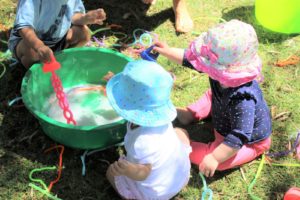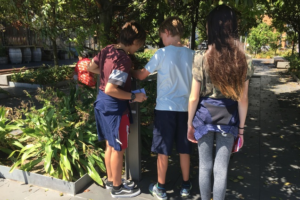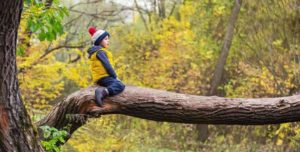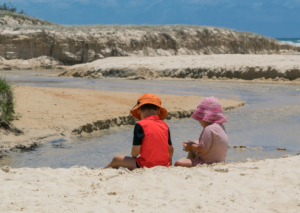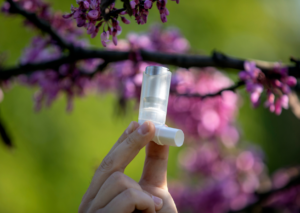Research into the importance of nature play, learning outdoors, risk-taking and children's mental and physical health and wellbeing forms the basis for the work we do.
Here you'll find the latest scientific research that shows the benefits of nature play for our children!
Use the Search function, or click on a keyword in Resource Categories to find research about a particular subject.
‘Pop-up parks’ represent one possible means to help meet the demands of urbanites for more opportunities to connect with nature in their neighborhoods, serve important conservation functions by providing small-scale habitat refuges for a wide variety of threatened plants and animals in urban environments, and deliver a suite of ecosystem services to urban residents and wildlife alike.
Read MoreNew Zealand children’s physical activity, including independent mobility and active travel, has declined markedly over recent decades. The Neighbourhoods for Active Kids (NfAK) study examines how neighbourhood built environments are associated with the independent mobility, active travel, physical activity and neighbourhood experiences of children aged 9–12 years in primary and intermediate schools across Auckland, New Zealand’s largest city.
Read MoreUrban residence is associated with a higher risk of some psychiatric disorders, but the underlying drivers remain unknown. Here, we investigate the prospective association between green space and mental health in the Danish population.
Read MoreExposure to nature improves cognitive performance through a process of cognitive restoration. However, few studies have explored the effect in children, and no studies have explored how eye movements “in the wild” with mobile eye tracking technology contribute to the restoration process. Our results demonstrated that just a 30-min walk in a natural environment was […]
Read MoreThe urban environment has been criticized for promoting ‘nature-deficit’ and ‘child-nature disconnectedness’. Keeping in mind the importance of nature exposure and its extensive health benefits, many environmental programs around the world hope to (re)connect children with nature. To evaluate the effectiveness of such efforts, valid tools to measure Connectedness to Nature (CN) are needed but do not exist today, especially for use with pre-schoolers.
Read MoreIt is commonly believed that nature has positive impacts on children’s health, including physical, mental and social dimensions. This review focuses on how accessibility to, exposure to and engagement with nature affects the mental health of children and teenagers.
Read MoreChildhood and adolescence are crucial periods for brain development, and the behaviours during a typical 24 h period contribute to cognitive performance. The Canadian 24-Hour Movement Guidelines for Children and Youth recommend at least 60 min physical activity per day, 2 h or less recreational screen time per day, and 9–11 h sleep per night in children aged 8–11 years. We investigated the relationship between adherence to these recommendations and global cognition.
Read MoreAssociations of discretionary screen time with mortality, cardiovascular disease and cancer are attenuated by strength, fitness and physical activity: findings from the UK Biobank study
Read MoreThe authors examined the prospective relationship between physical activity and incident depression and explored potential moderators.
Read MoreResearchers assessed the association between the natural environment and asthma in 49,956 New Zealand children born in 1998 and followed up until 2016 using routinely collected data. Children who lived in greener areas, as measured by the normalized difference vegetation index, were less likely to be asthmatic.
Read More
